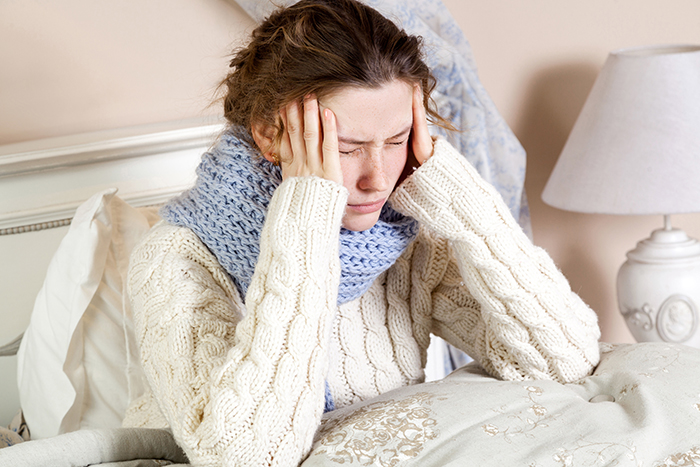Wondering whether to get a Coronavirus test done? Coronavirus testing can be a confusing subject thanks to all the different kinds – swab test or a blood test – and the reporting of unreliable results.
With this in mind, we’ve rounded up everything you need to know about Coronavirus tests in the UK…
Which test tells me if I have coronavirus?
It’s not a question of whether a swab test is better than a blood test because these two tests answer completely different questions.
A swab test tells you whether or not you are currently infected. That’s all it tells you. But this is important because you can isolate for 14 days to minimise the chance of spreading the virus, if you test positive.
The official name for it is a PCR (polymerase chain reaction) test.
‘Taking a PCR test shows if you have detectable viral particles in your body, meaning you are infected,’ says Dr Zania Stamataki, viral immunologist at the University of Birmingham.
‘We swab the back of your throat, then nose to scrape up a small sample. A lab checks the sample to see if it contains the genetic material of the virus.’
Can I have a coronavirus swab test?
Currently anyone with symptoms of Coronavirus can request a PCR test through the NHS website. Priority is given to essential workers, such as hospital staff, and those living with them. According to the NHS, Covid-19 symptoms include high temperature, new and continuous cough, and loss of smell or taste.
The test is most effective during the first five days you have symptoms. Although it can take up to 14 days to show symptoms. So, don’t delay, request a test as soon as you experience Coronavirus symptoms.
Is a swab test reliable?
At best, the PCR test for Coronavirus has a false negative rate of 20 per cent, missing one-in-five cases, according to research from John Hopkins Medicine, published in May.
False negative tests are dangerous as someone who is infectious will unknowingly spread the disease if wrongly told they tested negative.
Chance of a false negative is high (between 100 per cent and 67 per cent) if you test too early (pre-symptom onset). On the first day of symptoms, false negatives were 38 per cent, decreasing to 20 per cent three days after symptom onset.
Chances of a false negative very slowly increased again from four days after symptom onset. So, testing as soon as you have symptoms is key.
Errors in sample collecting also affect the reliability of this test, especially when it’s self-administered. Some NHS swab tests are self-administered home testing kits and also some drive-through testing are self-administered.
‘It’s not a simple test to perform yourself,’ explains Dr Stamataki.
‘You have to swab very far back into the nasal and throat cavity, which can feel uncomfortable or unpleasant. But if you don’t swab far enough back, there’s potential for false negatives.’
How can I tell whether I’m immune to coronavirus?
You can’t. Not until more is known about how this virus works. If you’ve had the virus and recovered, it’s likely you have antibodies in your blood. Antibodies are your immune system’s way of fighting infection.
A positive antibody test means you’ve been infected by the virus in the past. At least a week previously, because antibodies take time to mount a defence. An antibody test does not reveal if you are still infected.
‘Antibodies probably spark immunological memory, which is how your body remembers to fight off specific infections, protecting you from reinfection,’ says Dr Stamataki.
But how long this protection lasts and whether everybody is protected is not yet known. The NHS says there’s not yet compelling evidence those infected develop long-lasting immunity.
‘People who tested positive for antibodies after the SARS-CoV outbreak of 2003 had them for a couple of years before the antibodies declined. So, it may be the same with Covid-19 as it’s a similar type of virus. But we don’t yet know.’
Can I have an antibody test?
A Public Health England (PHE) verified antibody test will be available very soon. NHS and care home staff will be prioritised. But your doctor can request an antibody test for you, if appropriate.
It’s a blood test (serological test) taken from your vein by a medical professional. A lab will examine your blood for Coronavirus antibodies.
A finger-prick antibody test for home-use is in development but has not yet been validated.
At present, an antibody test is only useful for data gathering or tracking the virus. As it doesn’t tell you if you’re currently infected and it doesn’t tell you if you have immunity. Although this could change if research eventually reveals antibodies do offer immunity.
Is an antibody coronavirus test reliable?
However, the UK had to scrap £16 million of antibody tests from China which were found to be insufficiently accurate. This is because Coronavirus antibody tests have been rushed to market without being properly validated. So, many tests are not accurate enough.
The new UK antibody tests are from world leading manufacturers (Roche and Abbott) and have been validated by Public Health England. Although the validation process did have limitations and neither test is 100 per cent accurate. Public Health England tests found the Roche antibody test to be 83 per cent accurate at correctly identifying those with Coronavirus antibodies, and 100 per cent accurate at identifying those who don’t have Coronavirus antibodies. While the Abbott test was 92 per cent accurate at identifying those with antibodies and 100 per cent accurate at identifying those who don’t. So, some cases of past infection will be missed by these tests.
Also, you may have a false negative antibody test because you don’t produce antibodies, even though you were infected.
‘For a small amount of people, antibodies can’t be detected post-virus. This may be because your immune system fought the virus using another method, such as with T cells or NK cells. Both these cells destroy infected cells. T cell responses may provide future protection from infection. However, NK cell responses will not,’ says Dr Stamataki.
What’s an antigen coronavirus test?
A swab test to see if you’re infected now. The UK currently doesn’t have any validated antigen tests. Though they are in development for future. PCR tests have been inaccurately called antigen tests in some sources. It’s similar but doesn’t work in quite the same way. PCR tests copy the virus genome, rather than detecting a specific virus protein as antigen tests do.
What about high street coronavirus tests?
Hight street retailers began selling finger-prick antibody tests last month, for around £69 per test. However, the Medicines and Healthcare Regulatory Agency instructed UK labs to stop processing the samples and asked retailers to stop selling them. This is because the tests had not been validated for home use. So, results are unreliable. This may change if the tests become sufficiently validated.

What’s the future of coronavirus testing?
- A saliva test to diagnose current Coronavirus infections is being trialled but has not yet been approved. Aiming to be more accurate than the current PCR swab test.
- Accurate results within 20 minutes is the hope of an antibody test being developed in Scotland. It will use a lateral flow design (like a pregnancy test) with a finger-prick blood sample to rapidly detect Coronavirus antibodies.
‘We need to find out why lots of Covid-19 patients are having lingering symptoms, even after the virus is no longer detectable in their body. Could it be the infection has kicked off an immune response which is causing long-term symptoms?’ says Dr Stamataki.
‘The virus hasn’t gone away, so testing is important to identify and isolate pockets of infection to prevent them becoming a bigger outbreak.’
In summary…
Where can I get tested?
Apply for a diagnostic coronavirus test as soon as you have symptoms here. You can apply for a home testing kit, or get swabbed at a drive-in facility
Coronavirus tests at a glance
- Swab test: Nose and throat swabbed to see if you are currently infected. Called a PCR test.
- Antibody: Blood test to see if you have been infected in the past.
- Antigen: Swab test for diagnosing current infection. None approved in UK yet.









